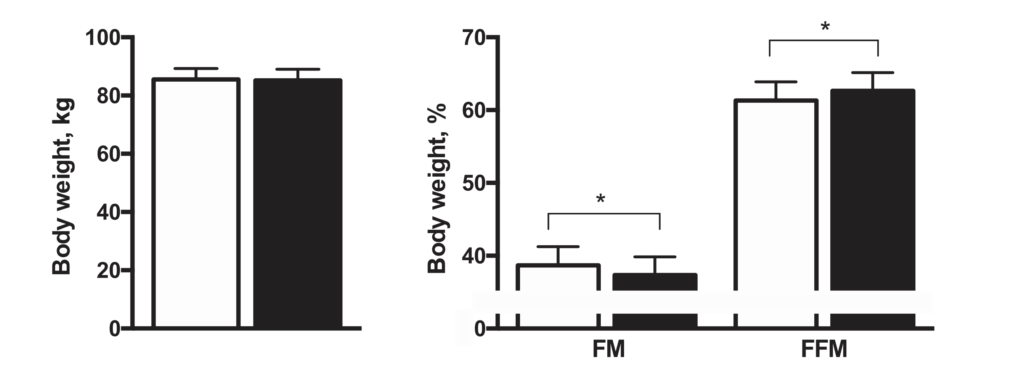NAD+ Supplementation Shows an Improvement of Body Composition in Clinical Trial
The new six-week trial shows that NR supplementation in healthy, obese humans increases NAD+ metabolism and improves body composition.
Nicotinamide adenine dinucleotide (NAD+), a linchpin to body function, is the most abundant molecule in metabolic reactions next to water, but its level decreases as we age. Studies have shown that replenishing NAD+ levels in animals with nicotinamide riboside (NR), an NAD+ booster, can promote health and even “reverse” the effects of aging.
Now, a group of Dutch scientists is investigating the safety and efficacy of NR in humans. The six-week trial, published in The American Journal of Clinical Nutrition, showed that NR increased markers for skeletal muscle NAD+ metabolism, affected skeletal muscle metabolism, induced body composition change and raised the sleeping metabolic rate. However, the researcher observed no other metabolic health effects.
A small group of thirteen men and women between 45 and 65 years old with a sedentary lifestyle underwent the trial. The participants showed no adverse effects while taking 1000mg of NR a day for the six-week duration of a double-blinded, placebo-controlled trial.

After six weeks of receiving NR supplementation, the team found a significant increase in NAD+ metabolism markers, such as nicotinic acid adenine dinucleotide, by 677 percent in the participants’ skeletal muscle. The supplement also enhanced the exercise-induced increase in acetylcarnitine, a chemical associated with muscle metabolism.
Animal studies have shown profound metabolic health effects after NR supplementation. But in the human trial, an increase in NAD+ did not lead to an increase in muscle mitochondrial function, meaning the function of the cell’s powerhouse did not improve with NR. The raised NAD+ level also didn’t increase the participants’ insulin sensitivity. High insulin sensitivity indicates that the cells use glucose more effectively to reduce blood sugar.
The researchers also noted that they did not observe cardiac function improvements, despite preclinical studies suggesting NR supplementation can improve cardiovascular health.
However, the team found several changes in the participants’ body composition, which has not been reported before. Although the participants’ body weight remained stable, the percentage of fat mass decreased after taking NR. In contrast, the percentage of fat-free mass (the whole body mass except fat) was 1.33 percent higher than the control group.
After taking NR supplements, the participants also showed a higher sleeping metabolic rate, which results from the increased fat-free mass, suggesting the finding may be an effect of NR on fat-free mass. A higher metabolic rate could also lead to a reduction in fat mass.
Moreover, six out of seven women went through body composition change, but only one out of six men experienced it, suggesting a gender difference in the effect of NR supplementation.The researchers suspect that NR may not be beneficial in improving the participants’ metabolic health at the trial’s dosage and duration. “Further research is warranted into the effects of long-term NR supplementation on acetylcarnitine concentrations, sex-specific improvements in body composition and metabolic health in humans,” says the authors of the study.

